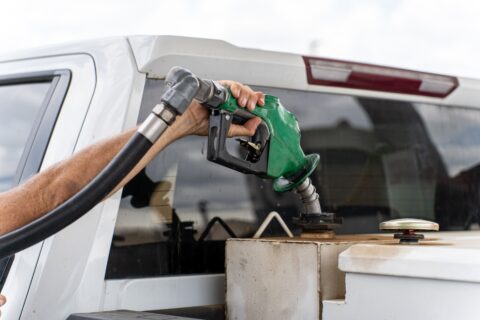How Bulk Fuel Providers Are Helping Businesses Go Green
In the current world, organizations, particularly businesses, are gradually embracing the need to adopt sustainable approaches to their consumption of fuel. Although the use of renewable energy is slowly gaining acceptance, mass fuel suppliers are coming up with various ways of assisting organizations to switch to sustainable power. They include cleaner fuel provisions, which play the part of decreasing the carbon footprint, as well as efficient logistics that contribute to the reliability of service providers.
Sustainable Fuel Supply and Low-Emission Fuel Alternatives
The most significant way through which the bulk fuel suppliers support sustainability is through the provision of cleaner fuel types to the businesses. The conventional combustible resources emit a large amount of greenhouse gases, but suppliers offer such forms of fuel as biofuel, renewable diesel, and CNG that are less hazardous to the environment.
- Bio fuels: Obtained from biological sources like vegetable oils and animal fats the bio fuels mean low emission of carbon dioxide; they also tend to have a positive effect on the life of the engine.
- Renewable Diesel: This fuel is different from biodiesel as it goes through a refinement process like traditional diesel, thus, occupying the category of drop-in fuel with a lower carbon footprint.
- CNG & LNG (Liquefied Natural Gas): The said fuel is clean burning compared to diesel and gasoline and thereby emits lesser Nitrogen oxide and particulate matter.
In this way, such supplies help companies change to green energy sources without incurring the expenses associated with seeking other supplies of fuels on their own.
Sustainability in Fuel Consumption Through Efficient Management & Logistics Optimization
In addition, bulk fuel suppliers contribute to sustainability by having better fuel supply chain management and delivery. Accurate supplies and fuel inventory control reduce cases of wastage and the need to transport fuel in the country. Key strategies include:
- Just-in-time Fuel Supply: This process helps in providing fuel at the right time to a business organization without the need to stock up the product in large quantities.
- Telematics and Fleet Monitoring: Sophisticated systems for monitoring assure fuel cooperation and promptly identify weak spots in cooperation, ineffective routes, and opportunities for reducing fuel consumption in general.
- Bulk Fuel Storage Reducing Transportation Frequency: Storing fuel in bulk reduces the need for frequent deliveries, lowering carbon emissions associated with transport.
Some providers cooperate with companies to introduce electric or hybrid vehicles into a business and provide a combination of fuels to transition the company from conventional methods to the use of renewable energy sources in the transportation system.
Sustainability in Bulk Fuel Supply and Carbon Offset Programs
As businesses acknowledge that they cannot eliminate fuel use, bulk fuel suppliers are launching carbon offset programs. These initiatives allow companies to offset emissions by supporting projects like afforestation and solar energy development. Some suppliers also provide carbon tracking software to help businesses monitor and reduce their fuel-related emissions.
Waste Reduction & Circular Economy Initiatives
Today, there is a tendency to improve resource efficiency in the supply of fuel by implementing the principles of a circular economy. Some key initiatives include:
- Collection of Waste oil and lubricant: Wastes, including used oil and lubricants, are sometimes collected for reprocessing and reuse, thus minimizing environmental impacts and reducing reliance on virgin oil sources.
- Fuel packaging: Suppliers are using environment-friendly material for packing, while much has been done to enhance the quality of the tanks to eliminate leakage and fuel evaporation.
- Waste-to-Energy Solutions: Some of the suppliers participate in waste-to-energy projects through which industrial wastes are converted to fuel or energy.
Collaboration with Industries for Sustainable Practices
The related parties are key stakeholders in the sustainable provision of bulk fuel. They collaborate with transportation, construction, and manufacturing industries to offer fuel solutions that align with environmental standards and corporate sustainability goals.
For example:
- Construction: Manufacturers supply a low sulfur diesel (LSD) and environmentally friendly fuels to the construction sites.
- Trucking: Route planning and fuel consumption consultancy is helpful for trucking companies.
- Agriculture: Farmers enjoy special biofuels that will not affect the performance of the machines but are friendly to the environment.
The Road Ahead: Towards a Greener Future
The providers of bulk fuels are working tirelessly to guide the clients on the new strategies of transition towards the green energy. The energy providers in the future will also have the essential roles to help develop the cleaner fuel technologies where the logistics of fuels will be much better and more efficient, and help the traders in their transition to being much greener.
By integrating a sustainable fuel supply, biofuels, low-emission fuel alternatives, smart logistics, emissions tracking, and waste reduction, bulk fuel suppliers are ensuring that businesses can operate efficiently while contributing to global sustainability efforts. The transition is happening, and the bulk fuel providers are demonstrating that sustainability and efficiency are possible.


